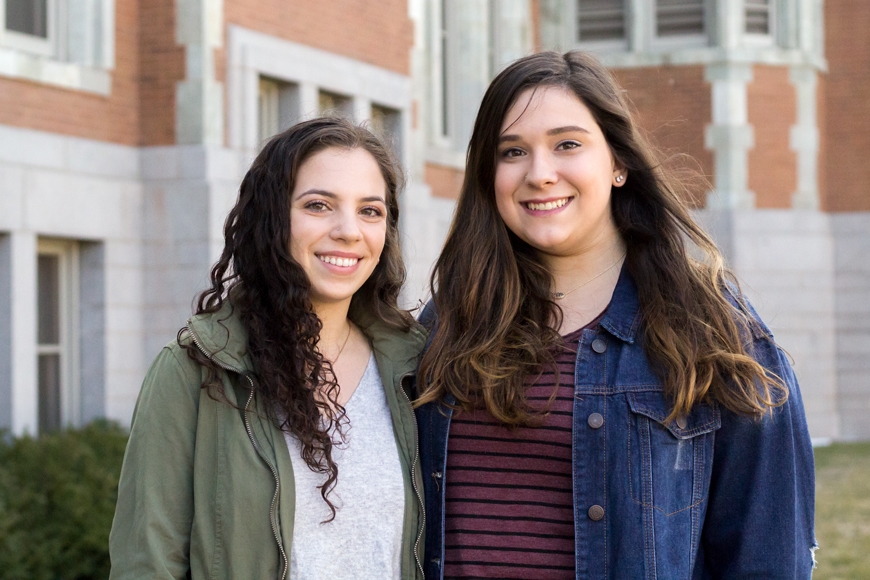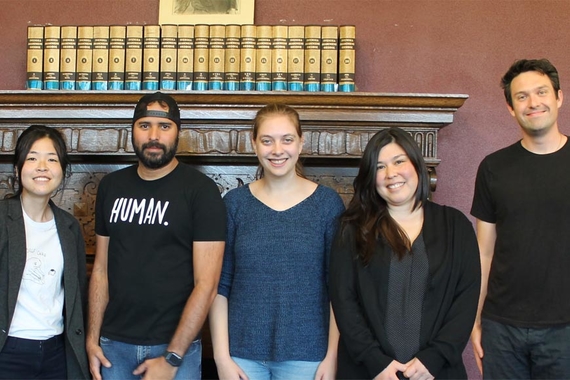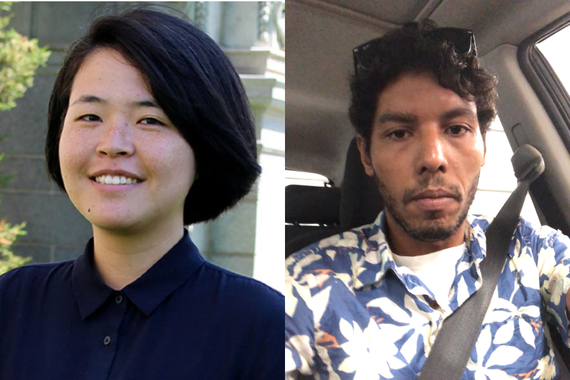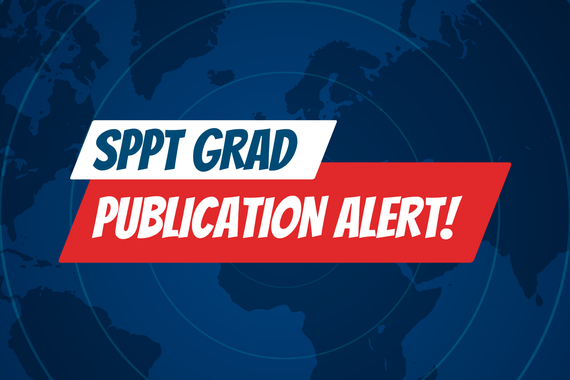Conference Confidence: Preparing Undergraduates for Academic & Professional Careers
Imagine this: an undergraduate student conference with the benefits of an academic, professional conference.
Since 2013, the Undergraduate Interdisciplinary Conference (UIC) has provided a platform for students to share their work with their peers in an academic setting, mirroring a professional conference.
Conference Readiness
Now in its sixth year, the conference is still going strong, with over 30 students participating in 2018. Organizers Maryanne Williams Smoczyk, of the Department of Spanish and Portuguese Studies, and Danielle Dadras, of the Institute for Global Studies, wanted to build community across the University’s language and culture departments while providing an interdisciplinary experience for undergraduates. Students who participated in the UIC got feedback from beyond their primary areas of study and are well-prepared to participate in academic conferences early in their post-college careers.
The three-day conference was hosted by a number of CLA departments: global studies, Asian languages & literatures, French & Italian, and, of course, Spanish & Portuguese studies. Students pursuing majors or minors from these departments gave short presentations and led discussions about significant global issues, which ranged from the Colombian LGBT rights movement to midwifery and obstetrics in Puerto Rico and even the politics of water. Williams Smoczyk points out that these “open forums” are aimed at exploring and questioning issues collaboratively, as opposed to producing “argumentation and answers.”
Global Perspectives
This year, students who participated in the conference also partnered with CLA Career Services to host a student-led lunch panel to promote language skills and how they can help further a career. With the help of Career Counselor Erica Tealey, students gained insight about postgraduate education and international career options, learning abroad, and facing the fears and obstacles that go with those paths.
The panel also fostered a discussion on American privilege and what that means for volunteering and working abroad for an international career. “It's important to [the organizers of the panel] that part of this conversation focused on the ethics of working in ‘other’ communities—about what it means to work or study abroad with American privilege and how to ‘help’ without falling into some type of savior complex,” explains Tealey.
Professional Experience
The conference provided students with the opportunity to present work they’re passionate about, with the intention to prepare them for a career after graduation. “It’s more of a dry-run for that first academic conference that they’re going to go to in year one of their PhD,” explains Dadras. “So, this can be a really critical intervention to help that first conference run more smoothly.”
Senior Julia Dworsky presented on the topic of Spanish neuroscientist Santiago Ramon y Cajal and how his work as an artist influenced his groundbreaking discoveries about the brain. “The UIC was a great way for me to outline my thoughts related to my senior project and was beneficial in the writing process of my thesis. It challenged me to practice my public-speaking skills and what a graduate-level thesis defense would entail.”
Sophomore Lauren Rickman, who is double-majoring in Spanish studies and child psychology, presented a paper on the children of Spanish-speaking families in the Midwest and the social implications of the effects of English on Spanish. She recounts, “Before the conference, I did not have a grasp on what an academic conference was like, but now I feel more confident in my abilities as a presenter and a Spanish speaker.”
The benefits don’t end there. Dadras goes on to explain the overall importance of the conference and its effect on a liberal arts student. “I’m thrilled that the College is placing emphasis on professionalization and readiness as a way to help students understand their potential in the work world,” explains Dadras. “A liberal arts education is important because it will make a good person in addition to a good worker.”
This year’s conference would not have been possible without the $1,000 grant from the readiness initiative from Dean John Coleman.
Williams Smoczyk and Dadras are grateful for the support from the College of Liberal Arts for coordinating this conference, which gave students like Dworsky and Rickman valuable experience that allowed them to grow academically and professionally.
This story was written by an undergraduate student in CLA.



